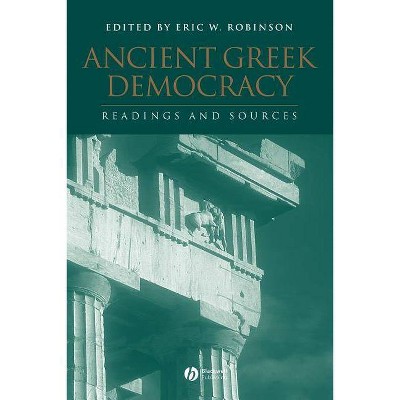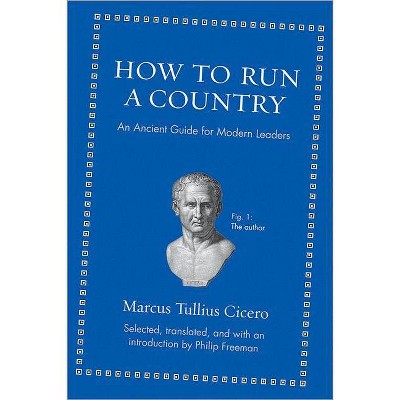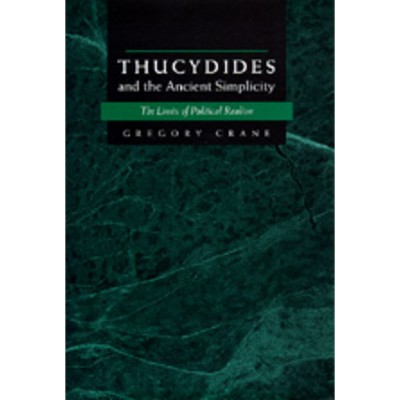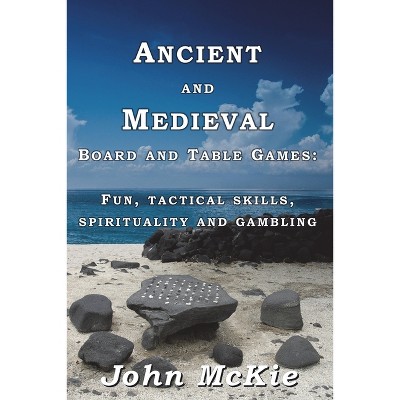Sponsored

Ancient Guide to Good Politics - by Moryam Vanopstal (Paperback)
In Stock
Sponsored
About this item
Highlights
- In An Ancient Guide to Good Politics: A Literary and Ethical Reading of Cicero's De Republica, Moryam VanOpstal argues that Cicero should be considered the great unifier of classical political thought, with fresh insight on pivotal issues such as the best way of life and how to preserve a good regime.
- About the Author: Moryam VanOpstal is professor of history and government at The Cambridge School of Dallas.
- 194 Pages
- Political Science, History & Theory
Description
About the Book
In An Ancient Guide to Good Politics: A Literary and Ethical Reading of Cicero's De Republica, Moryam VanOpstal argues that Cicero should be considered the great unifier of classical political thought, with fresh insight on pivotal issues such as the best way of life and how t...Book Synopsis
In An Ancient Guide to Good Politics: A Literary and Ethical Reading of Cicero's De Republica, Moryam VanOpstal argues that Cicero should be considered the great unifier of classical political thought, with fresh insight on pivotal issues such as the best way of life and how to preserve a good regime.
Review Quotes
Cicero's Republic poses unique challenges of interpretation. What teaching can we confidently ascribe to a text that must have been one of the great and comprehensive works of political philosophy as originally written, but that can now be read only in fragments? By careful attention to both the arguments and the dramatic elements in the extant text, along with judicious reference to the Ciceronian corpus, Moryam VanOpstal has produced a rich and provocative commentary that will surely contribute to the ongoing revival of Cicero's political philosophy... This book will prove useful to anyone hoping to understand those purposes and to take up Scipio's advice to live as though his country's fate may depend on him.
In this engaging book, VanOpstal guides readers through the fragmentary remains of Cicero's treatise De republica (On the Republic), which was modeled loosely on Plato's Republic. Cicero identified with the Platonic Academy--which in his day was skeptical about the possibility of attaining ultimate wisdom--and his dialogue reflects this philosophical modesty. VanOpstal comments sequentially on the text (or what remains of it) from beginning to end, pausing twice to discuss the concluding "Dream of Scipio." VanOpstal reads carefully and writes clearly, and anyone interested in classical political thought and its possible contemporary relevance will find this book valuable and thought provoking. Recommended. Advanced undergraduates through faculty and general readers.
In this rich and deeply thoughtful commentary on Cicero's great but fragmented political dialogue, VanOpstal has helped to fulfill a hope of scholars who participated in the renewal of respect for Cicero as a thinker over the last two generations. The hope was and is that accessible commentaries on individual works of Cicero would follow, commentaries built on the scholarship of the renaissance in Cicero studies. VanOpstal's treatment of Republic is not only well-informed by this scholarship but is also marked by careful reading of Cicero's text, exceptional attention to dramatic details and the literary aspects of the text, and philosophical reflections that reveal an author well-grounded in classical philosophy. "The Dream of Scipio" provides "the hermeneutical key" for VanOpstal's commentary. He convincingly argues that Cicero unifies the active and contemplative life into one, where others have found an unresolvable tension. This commentary should be close at hand for the student disposed to explore the complexities and depths of Cicero's Republic.
VanOpstal gives De Republica--Cicero's central philosophic work--the careful reading it deserves. The result is a number of keenly perceptive insights into the dialogue, revealing Cicero to have been a devoted student of the philosophical tradition that began with Socrates, as well as a great philosopher in his own right.
About the Author
Moryam VanOpstal is professor of history and government at The Cambridge School of Dallas.Shipping details
Return details
Trending Non-Fiction






Discover more options





